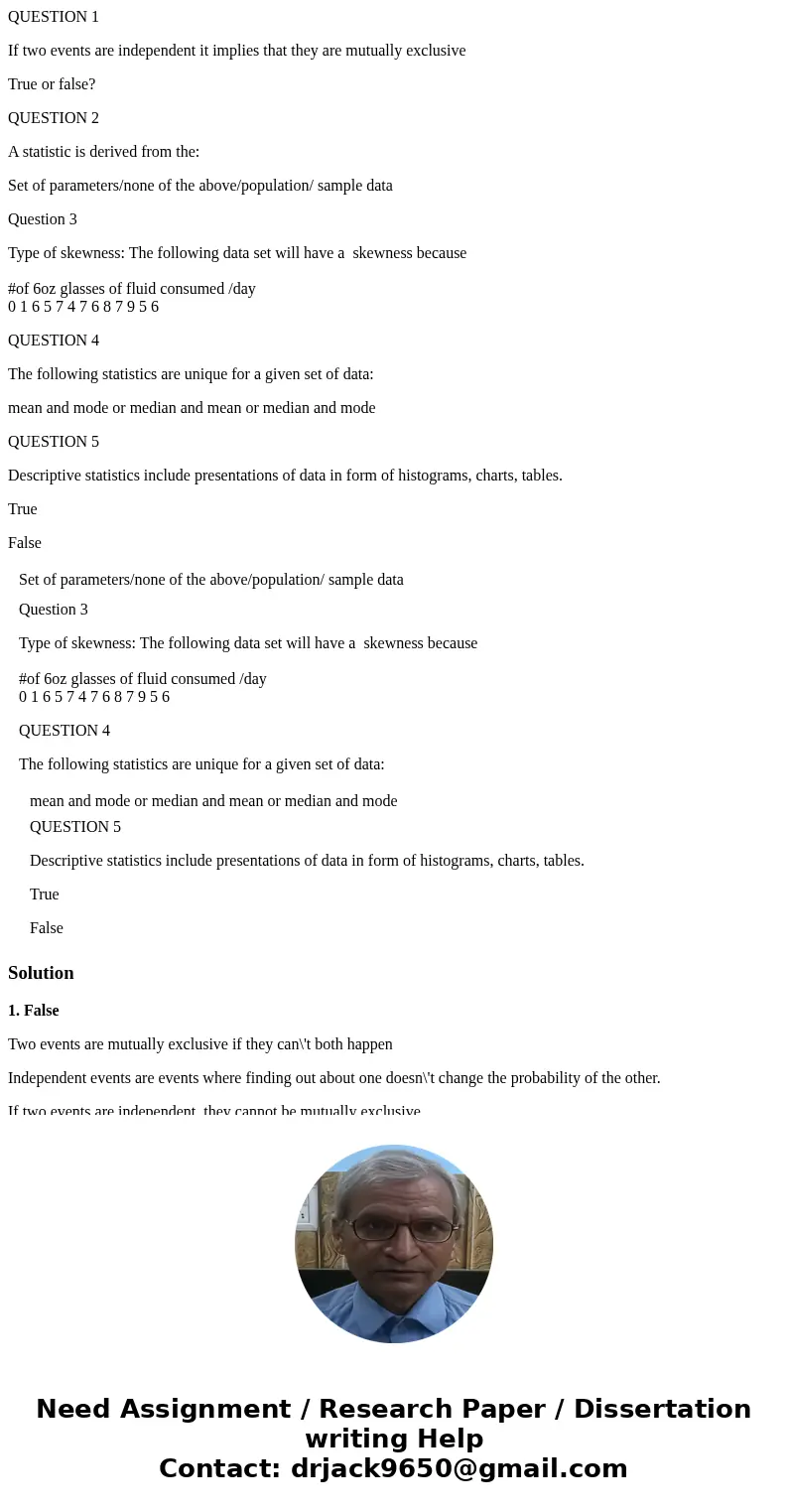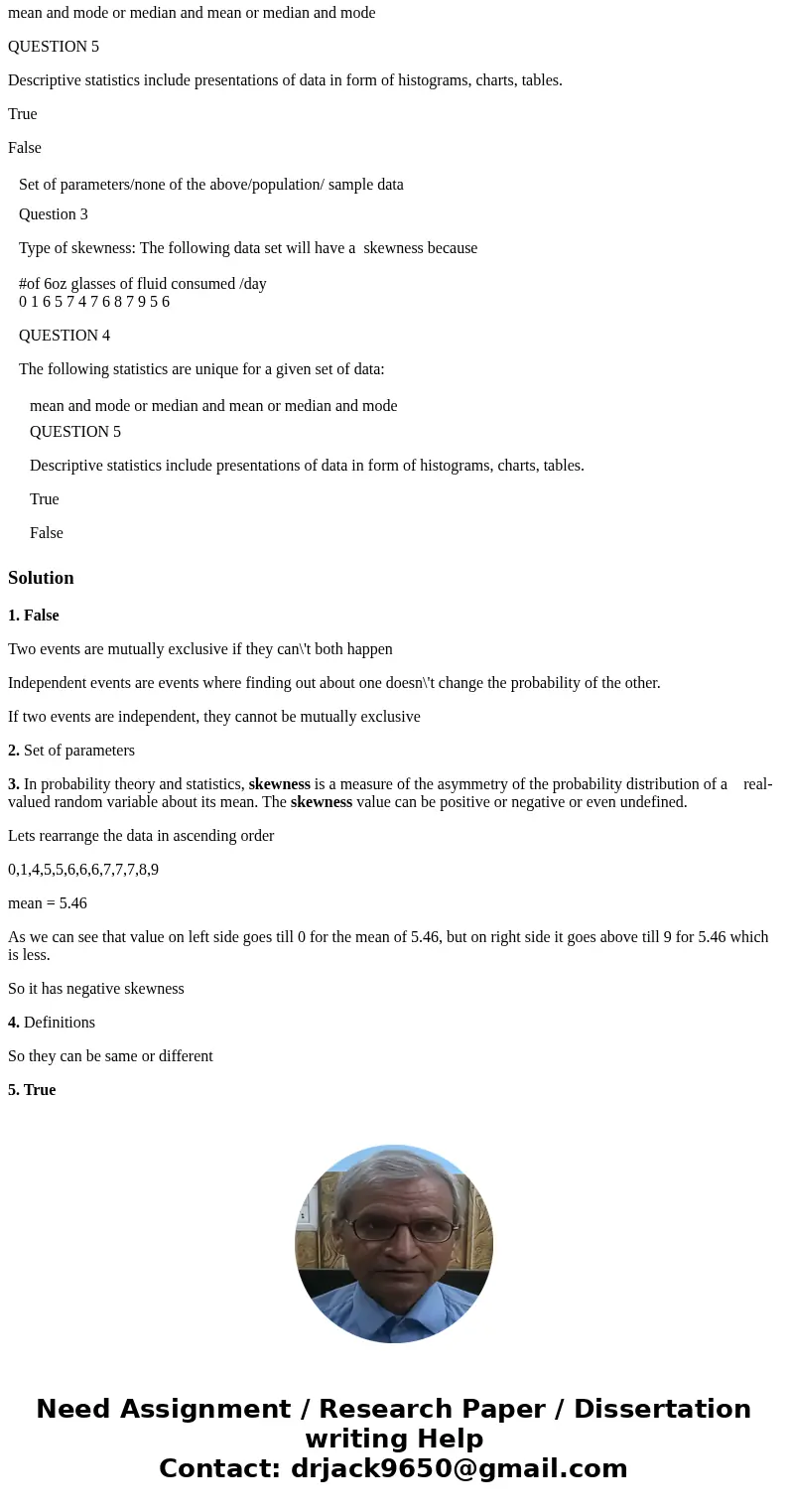QUESTION 1 If two events are independent it implies that the
QUESTION 1
If two events are independent it implies that they are mutually exclusive
True or false?
QUESTION 2
A statistic is derived from the:
Set of parameters/none of the above/population/ sample data
Question 3
Type of skewness: The following data set will have a skewness because
#of 6oz glasses of fluid consumed /day
0 1 6 5 7 4 7 6 8 7 9 5 6
QUESTION 4
The following statistics are unique for a given set of data:
mean and mode or median and mean or median and mode
QUESTION 5
Descriptive statistics include presentations of data in form of histograms, charts, tables.
True
False
| Set of parameters/none of the above/population/ sample data | |||||||||||
| Question 3 Type of skewness: The following data set will have a skewness because QUESTION 4 The following statistics are unique for a given set of data:
|
Solution
1. False
Two events are mutually exclusive if they can\'t both happen
Independent events are events where finding out about one doesn\'t change the probability of the other.
If two events are independent, they cannot be mutually exclusive
2. Set of parameters
3. In probability theory and statistics, skewness is a measure of the asymmetry of the probability distribution of a real-valued random variable about its mean. The skewness value can be positive or negative or even undefined.
Lets rearrange the data in ascending order
0,1,4,5,5,6,6,6,7,7,7,8,9
mean = 5.46
As we can see that value on left side goes till 0 for the mean of 5.46, but on right side it goes above till 9 for 5.46 which is less.
So it has negative skewness
4. Definitions
So they can be same or different
5. True


 Homework Sourse
Homework Sourse